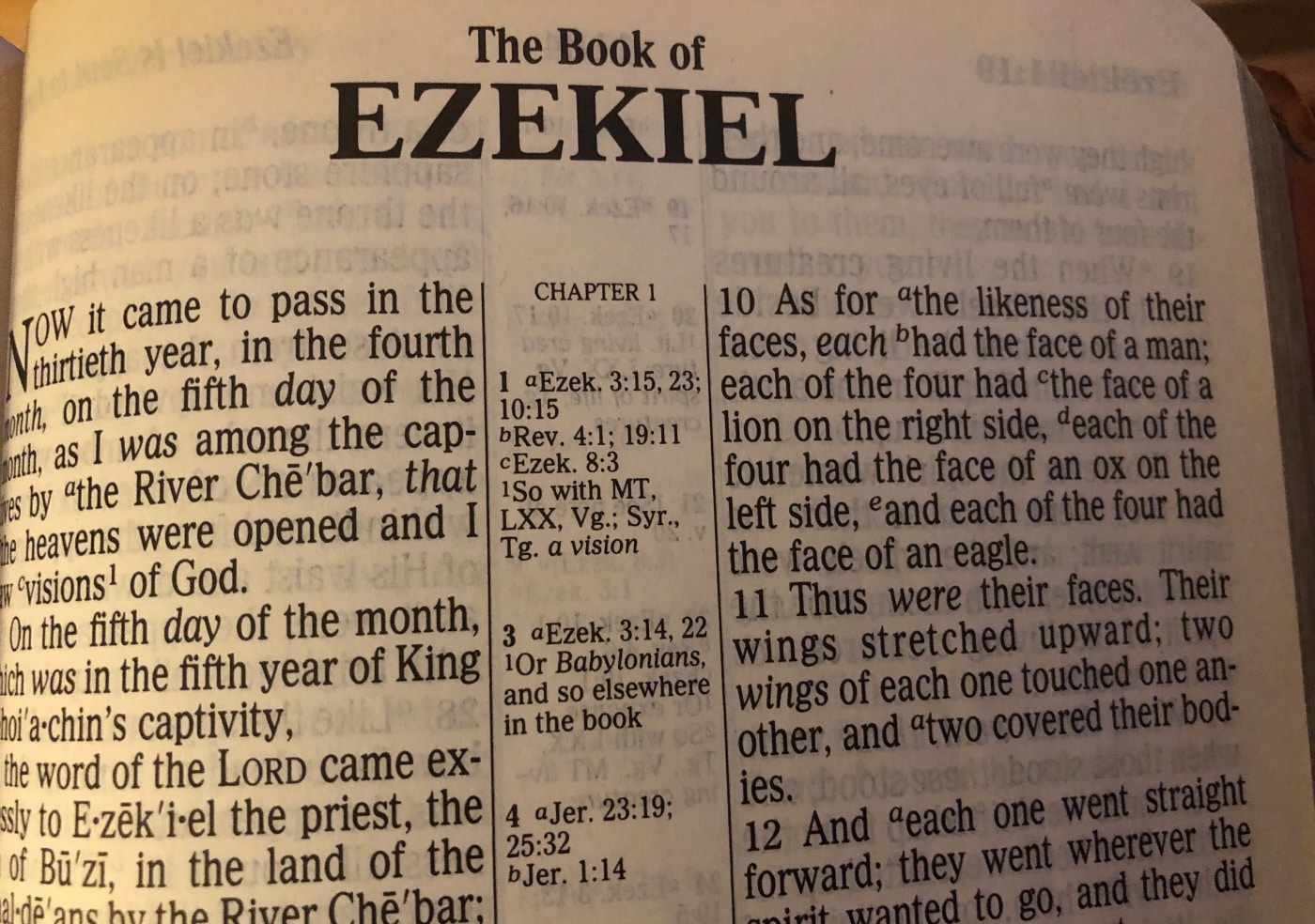The Scripture makes it very clear that as we focus on purity we experience power from above. Paul stressed this in his final letter to his understudy Timothy. “Therefore if anyone cleanses himself from the latter [i.e., “iniquity”], he will be a vessel for honor, sanctified and useful for the Master, prepared for every good work” (2Ti 2:21). How? The process is simple: God the Father works through the Son. The Son works through the Holy Spirit. The Spirit works through the Word. The Word works through the believer. The believer works through living faith.
Gene Cunningham - September 25, 2003
Ezekiel #16

Outline of Ezekiel Chapter 17: (1) Revelation - "the great eagle" (Eze 17:1-10); (2) Interpretation (Eze 17:11-21); (3) Application (Eze17:22-24). The "eagle with colored feathers" refers to Nebuchadnezzar and Babylon (Eze 17:3). "Lebanon" is a figure for the royal house of Israel - the cedars of Lebanon were used in constructing the palace and temple (1Ki 7:2, Jer 22:23). The "topmost young twig" refers to Jehoahchin Eze 17:4 (also "Coniah" - God pronounced a blood curse on Him). They went without a King for many years (Hos 3:4, Joh 19:15, Mat 23:39). Matthew carries the lineage of Joseph; Luke has the lineage of Mary; these show the solution to the Coniah curse. Zedekiah was Babylon's puppet King of Israel "planted in a fruitful field" (Eze 17:5-6). The other eagle is the Pharaoh of Egypt (Eze 17:7).
Scripture References: Ezekiel 17:11-21, John 19:15, Ezekiel 17:1-10, Hosea 3:4, Ezekiel 17:4, Jeremiah 22:23, Ezekiel 17:7, Ezekiel 17:3, Ezekiel 17:5-6, Ezekiel 17:22-24, Matthew 23:39
From Series: "Ezekiel - 2002"
Ezekiel's vision of God's glory effected his life.

